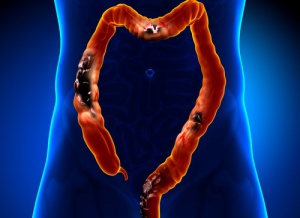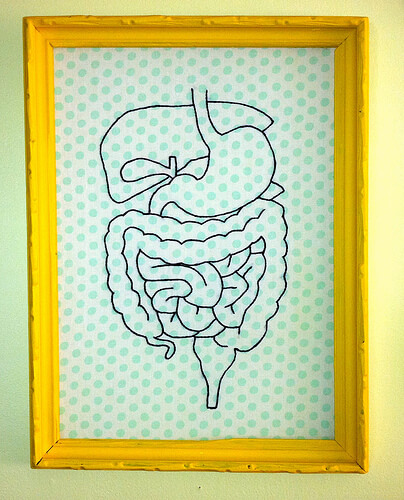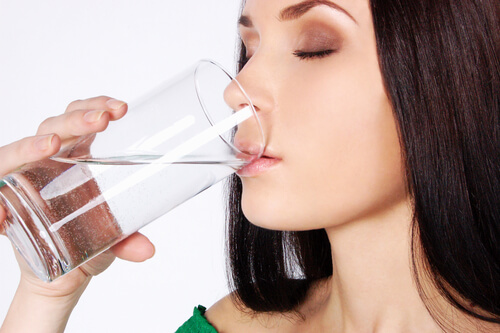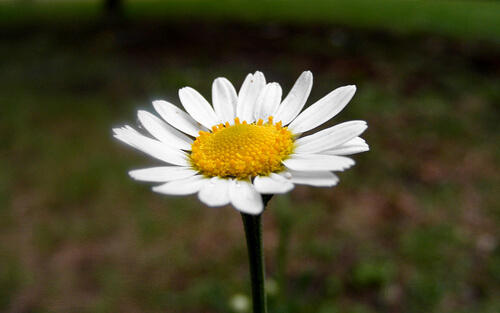Foods to Avoid If You Have Diverticulosis

Diverticulosis is a disorder in which the covering of the colon comes out like small balls or bumps, which causes malaise and pain when eating certain kinds of food. Find out what kinds of foods to avoid if you have this problem.
What to Know About Diverticulosis
Like we said in the beginning, this is the presence of small sacks, hernias, or swollen parts in the intestine, precisely in the section that corresponds to the colon.
It is a very common condition that has no symptoms except for waste material or food particles stuck in these bulges or diverticula. Consequently, this makes them more full of bacteria.
That is when the pain will begin in the lower left part of the abdomen, the first sign. You also have to pay attention if you suffer from diarrhea followed by constipation, fever, nausea, vomiting, etc.

After you have an episode of Diverticulosis, there is a risk of up to 45% that it will come back. Doctors suggest avoiding these foods so that the problem does not get worse.
You might also like:
What Foods To Avoid for Diverticulosis?
- Grains: avoid eating products that come from grains like in the case of popcorn, corn rolls, corn flakes, wild or whole rice. All these contain a large amount of fiber that is difficult to digest and can stay in the diverticula. In turn, this will aggravate the problem. For their replacement, go for refined grains like pasta, rice, baked foods, or refined flour cookies.
- Fruits and vegetables: It is true that you cannot live without eating these foods, but at least during the time that the problem is happening, we suggest not eating them. Avoid eating dried fruits, like prunes, because they have a lot of fiber. Stay away from berries because their seeds are difficult to digest. You should also avoid cruciferous vegetables like broccoli, cabbage, and cauliflower.
- Don’t drink fruit juices with pulp and be sure that you cook well all of the vegetables you eat. As a result, you will soften the fiber and digest them easier. You should also avoid all raw fruit, except for peaches, avocado, melon, and banana. The rest should not have skin or a shell or any small seeds.
More foods to avoid for Diverticulosis
- Meat and protein: choose tender or sliced meat, fish (any kind), and eggs for your main sources of protein. These foods will not irritate your colon and are easy to digest. Don’t eat strong cheeses because they contain a large dose of casein, which is bad for Diverticulosis. Remove any dishes from your diet that contain seeds or nuts like peanut butter, for example.
Reduce your portions of peas, beans, and legumes. They are a large source of fiber. - Peels, pasta and spices: these three foods are also prohibited because they cause more inflammation than what this illness does. This means that fruits, vegetables, and meats should not have any skin or shells. Very spicy spices are also bad for your body.
- Carbonated beverages: this includes coffee, tea, maté, chocolate, sodas, and caffeinated beverages. They are all irritants of your intestine. In the case of caffeine, which is in all of these, your colon muscles contract, which gives the ability to eliminate the water that feces contains and aids constipation. If it is very hard to stop drinking coffee, start with decaffeinated, but try to stop drinking it as soon as possible.
You might also like:
5 Beverages to Avoid and Their Healthy Alternatives
Tips, Advice, and Remedies for Diverticulosis
- Drink a lot of water (between six and eight glasses a day)
- Go to the bathroom even if you don’t have to go badly. Don’t suppress the urge because you can make the situation worse
- Exercise to benefit your leg, hip, and colon muscles, which will facilitate bowel movements
- Don’t use laxatives or enemas if you are constipated because they can irritate your intestines even more. They can also create a dependency on them because there is no proper functioning in the bowel movement system
- Avoid eating processed foods or greasy foods like spicy, sugary, or fried foods
- Avoid any foods that have seeds. Chew well before swallowing because the fragments can get stuck between the diverticula causing pain and inflammation
- Eat porridge or vegetable purées or cooked fruit. You can make smoothies without pulp as well to stimulate recovery during your treatment.
Plants recommended for treating Diverticulosis
- Chamomile: reduces inflammation and brings relief. Drink chamomile tea at least once a day
- Mint: used to relieve stomach bloating, pain, nausea, and gas. Drink up to 3 glasses a day
- Oregano: reduces inflammation in the colon
- Thyme: this is a great source of fiber and painkilling, antispasmodic, and anti-inflammatory ingredients. You can use it as a condiment for soup, sauces, or salads.
- Turmeric: it is a natural anti-inflammatory that is used for any kind of inflammation and to reduce diverticula.
Images courtesy of Hey Paul Studios, Orin Zebest, Memi Beltrame and Woodley wonderwork.
All cited sources were thoroughly reviewed by our team to ensure their quality, reliability, currency, and validity. The bibliography of this article was considered reliable and of academic or scientific accuracy.
- García Jordá, E. V, Díaz Canel Fernández, O., Martínez, R., Ruiz Torres, J., García Menocal, J., & Anido Escobar, V. (2008). Diverticulosis de colon. Actualización. Revista Mexicana de Coloproctología Septiembre-Diciembre.
This text is provided for informational purposes only and does not replace consultation with a professional. If in doubt, consult your specialist.










